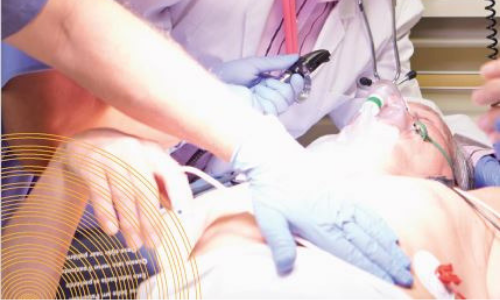From the inception of medical science, there is heavy reliance on research to find ways to detect and combat dreadful medical conditions. While the many of the diseases known are curable thanks to the advances in technology and innovations in research, there are still some that call for more attention and a more precise treatment plan.
One such medical condition is Sepsis – a life-threatening disease affecting more than 30 million people globally every year. Sepsis is a medical condition when the body’s response to a present infection damages its own tissues and organs resulting in death or serious illness. If not treated at the initial stages sepsis can trigger low blood pressure resulting in organ malfunction or even worse, a condition called septic shock.
Antibiotic treatment of sepsis patients often relies on clinical observation and educated guesswork as clinicians wait for a culture to determine whether the infection is bacterial, viral, or possibly fungal. But with the U.S. Food and Drug Administration’s (FDA) recent approval of automated platforms for procalcitonin assays and mounting evidence of PCT’s value as a biomarker, hospital laboratories are turning to PCT to diagnose sepsis and guide antimicrobial stewardship.
The world has acknowledged sepsis as a life-threatening condition and a challenge for the medical industry to combat. The Global Sepsis Alliance is an organisation working at the forefront to increase awareness about the disease and globally.
Over the past six years, Thermo Fisher has worked with the Global Sepsis Alliance and other advocates to raise awareness of the signs and symptoms of sepsis.
Thermo Fisher Scientific- a world leader in serving science is committed to providing exceptional laboratory tools to assess the risk of bacterial infection relating to sepsis with the B·R·A·H·M·S PCT (Procalcitonin) biomarker assay. The B∙R∙A∙H∙M∙S PCT assay provides information on the presence and severity of bacterial infection, helping physicians in emergency departments, intensive care units and other critical care units decide whether to initiate antibiotic therapy in patients and when to safely discontinue antibiotics in patients with lower respiratory tract infections (LRTI) and sepsis, without compromising patient safety.
B·R·A·H·M·S PCT (Procalcitonin) supports responsible use of antibiotics
The overuse of antibiotics is a global problem but the B·R·A·H·M·S Procalcitonin assay can help guide the judicious use of antibiotics. Credible evidence from several reproducible, randomized clinical trials with more than 10,000 patients support B·R·A·H·M·S PCT as an effective tool to safely reduce antibiotic exposure in patients. It has a proven utility across diverse clinical settings. In addition to other clinical criteria, these assays enable quick decision making by the clinicians, be it for starting antibiotic therapy or its safe discontinuation. B·R·A·H·M·S PCT greatly helps to reduce prescriptions, tailor the therapy duration to individual patient needs and finally supports to save costs.
There is a sheer need to develop and manufacture novel diagnostic testing tools that not only improve early diagnosis and treatment of life- threatening diseases like Sepsis, but also to provide high-quality immunodiagnostic assays to immensely support medical professionals and patients to get closer to a future without such dreadful infections.

About the author
Mr. Amit Chopra, Managing Director India and, Middle-East, Thermo Fisher Scientific
Amit joined Thermo Fisher Scientific India in May 2007 as Managing Director for their Laboratory Products Group in India, and was named Managing Director & VP/GM for Thermo Fisher’s India operations in March 2011. Amit has taken on additional responsibility for the Middle East region w.e.f. 2017.

